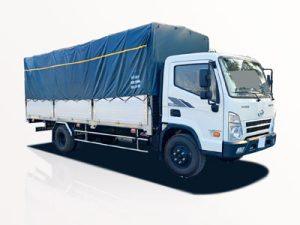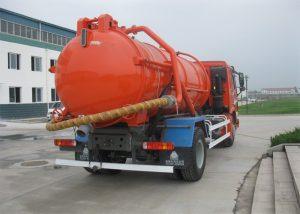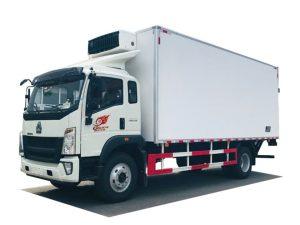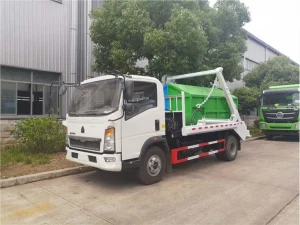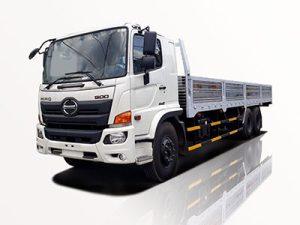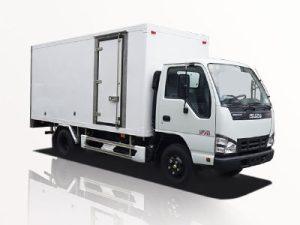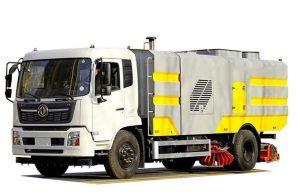Monday to Saturday - 8:00 -17:30
Gas Trucks for Sale: Your Ultimate Buying Guide
When it comes to versatility and efficiency, gas trucks are a go-to option for both personal and commercial use. Whether you need a reliable vehicle for work or play, finding the right gas truck for sale can be daunting. This comprehensive guide will help you navigate through the options available, making your truck-buying experience easier and more informed.
Understanding Gas Trucks
Gas trucks are powered by gasoline engines, offering a blend of performance, fuel efficiency, and affordability. They are available in various sizes and configurations, making them suitable for multiple purposes, from hauling heavy loads to everyday commuting.
Types of Gas Trucks
1. Light-Duty Trucks
Light-duty trucks typically have a gross vehicle weight rating (GVWR) of up to 8,500 pounds. They are perfect for everyday tasks, providing a balance between power and fuel efficiency. Examples include the Ford F-150 and the Toyota Tacoma.
2. Medium-Duty Trucks
Medium-duty trucks, with a GVWR ranging from 8,501 to 26,000 pounds, are ideal for more demanding jobs. They offer enhanced payload capacities. Models like the Chevrolet Silverado 2500 and the Ram 2500 fall into this category.
3. Heavy-Duty Trucks
Heavy-duty trucks are designed for serious heavy lifting, with a GVWR exceeding 26,000 pounds. These trucks are best suited for industrial and commercial use, such as the Ford F-350 and the GMC Sierra 3500.
Why Choose a Gas Truck?
Gas trucks offer several advantages over their diesel counterparts, including:
- Lower Purchase Cost: Gas trucks generally cost less than diesel trucks, making them more accessible for budget-conscious buyers.
- Less Maintenance: Gasoline engines typically require less maintenance than diesel engines.
- Quieter Operation: Gas engines are often quieter, providing a more pleasant driving experience.
Common Uses for Gas Trucks
1. Personal Use
Gas trucks serve as family vehicles or recreational vehicles. They are ideal for towing trailers, going on camping trips, or transporting sports equipment.
2. Commercial Use
Businesses often utilize gas trucks for deliveries, service work, and hauling equipment. The versatility and efficiency of gas trucks make them a preferred choice for many industries.
3. Off-Roading
Many models come with off-road capabilities, suitable for adventurous excursions. Available features like four-wheel drive enhance their off-road performance.
Factors to Consider When Buying a Gas Truck
1. Budget
Your budget will dictate the make and model you choose. Consider not just the purchase price but also insurance and maintenance costs.
2. Purpose
Identify the primary use of the truck—whether it’s for personal, commercial, or off-roading purposes. This will guide you in selecting the appropriate model and features.
3. Engine Size and Power
Consider how much power you need. For towing or heavy loads, opt for models with bigger engines, such as V8 engines.
4. Fuel Efficiency
Look into the fuel economy of different models. A truck that gets better mileage can save you money in the long run.
5. Features and Options
Modern trucks come with a variety of features including safety systems, entertainment upgrades, and towing capabilities. Choose a model that aligns with your needs.
Where to Find Gas Trucks for Sale
1. Dealerships
Local dealerships often have a range of new and used gas trucks. Visiting these dealerships allows you to test drive multiple models and negotiate prices.
2. Online Listings
Websites like Autotrader, Cars.com, and Craigslist allow you to browse listings of gas trucks available near you. This lets you compare prices and find specific features you’re interested in.
3. Auctions
Online auctions and local vehicle auctions can be great places to find gas trucks at lower prices. Be sure to do your research before purchasing to avoid potential headaches later.
Financing Your Gas Truck Purchase
1. Loan Options
Research financing options, including traditional loans, credit unions, and dealership financing. Compare interest rates and terms to find the best deal.
2. Trade-In Value
If you have an older vehicle to trade in, check its value beforehand to negotiate a better price on your new truck.
3. Budgeting for Upgrades
Consider setting aside a portion of your budget for future modifications or upgrades. Personalizing your truck can enhance its value and functionality.
Practical Tips for Buying a Gas Truck
1. Research Models Extensively
Before making any decisions, identify your needs and research various models and their features. Compare user reviews and reliability ratings to make an informed choice.
2. Test Drive Multiple Vehicles
Don’t just test drive one truck; try several to see which fits you best. Pay attention to comfort, visibility, and handling.
3. Inspect Used Trucks Thoroughly
If you’re buying used, inspect the truck carefully. Check for signs of wear, body damage, and check the vehicle history report for accidents or major repairs.
4. Negotiate the Price
Don’t hesitate to negotiate. Use online research to support your case and aim for a price within your budget.
Maintenance Tips for Your Gas Truck
1. Regular Oil Changes
Keep track of your oil change schedule and follow manufacturer recommendations. This can significantly prolong the life of your engine.
2. Tire Maintenance
Check tire pressure regularly and rotate your tires as needed. Maintaining good tire condition improves fuel efficiency and safety.
3. Brake Inspections
Monitor your brakes for responsiveness and wear. Address any unusual noises or behavior quickly for your safety.
Gas Trucks: Popular Models to Consider
| Model | Engine Type | Fuel Economy (mpg) | Starting Price (approx.) |
|---|---|---|---|
| Ford F-150 | V6, V8 Options | 21-25 mpg | $30,000 |
| Toyota Tacoma | 4-Cylinder, V6 | 18-23 mpg | $27,000 |
| Chevrolet Silverado 1500 | V6, V8 Options | 19-24 mpg | $32,000 |
| Ram 1500 | V6, V8 Options | 20-25 mpg | $35,000 |
Frequently Asked Questions (FAQs)
1. What is the average lifespan of a gas truck?
The average lifespan of a gas truck can vary widely, but with proper maintenance, many can last 200,000 miles or more.
2. Are gas trucks better for towing than diesel trucks?
Gas trucks may not generally provide as much torque as diesel trucks, but they are often sufficient for light to moderate towing needs.
3. What’s the difference between 2WD and 4WD gas trucks?
2WD trucks are typically better for city and highway driving, while 4WD trucks offer better traction and performance in off-road conditions.
4. Is it worth buying a used gas truck?
Buying a used gas truck can be a great way to save money, especially if you do your research and inspect the vehicle thoroughly before purchase.
5. What features should I look for in a gas truck?
Key features include towing capacity, safety systems, bed size, interior comfort, and fuel efficiency. Choose based on your specific requirements.
6. How can I improve the fuel efficiency of my gas truck?
Maintain regular service intervals, drive at moderate speeds, and avoid heavy acceleration. Additionally, consider using fuel-efficient tires.


